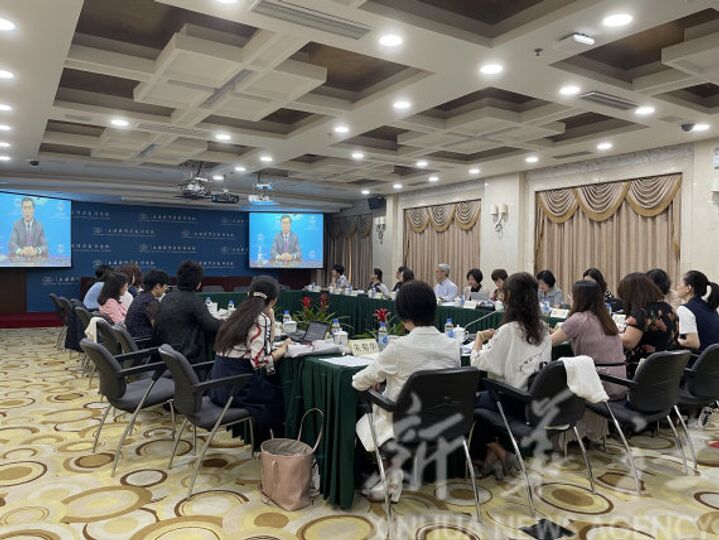On 11 June 2021, a women's academic conference, "Women's Perspective on the SCO: Pragmatism and Reality," was held in a hybrid format in Shanghai, China. The conference was sponsored by the Shanghai Institute for International Studies.
SCO Secretary-General Vladimir Norov sent the participants a video address, in which he stressed the significance of holding the conference in the run-up to the 20th SCO anniversary to be celebrated on 15 June.
Mr Norov noted in particular that the Shanghai Spirit had proved its viability and international appeal. During its 20 years' history, the SCO has evolved into one of the world's largest systems for a successful alignment of national and regional interests in various areas of cooperation.
"The SCO's synergistic potential has been vividly displayed in the course of efforts to fight the COVID-19 pandemic, which has caused a crisis around the planet. Woman scientists in our countries have been actively involved in the SCO's work and events. Moreover, women's perspectives are distinguished by being topical and concrete; they place more focus on addressing humanitarian issues and strengthening cooperation between the SCO countries in matters such as the protection of the family and the women's and children's rights. This is highly important and necessary.
In recent years, joint efforts have been undertaken within the SCO framework to promote cooperation among women. As of today, two SCO Women's Forums have been held in Beijing (2018) and Bishkek (2019). The SCO Presidency of the Republic of Tajikistan is planning to hold the next SCO Women's Forum in Dushanbe on 10 June 2021," the SCO Secretary-General said.
In conclusion, Mr Norov expressed confidence that the SCO development proposals and initiatives advanced at the conference would be actively used in the work to draft relevant documents to be approved by the SCO Summit in Dushanbe in September 2021.
Ms Li Qi, Director of the Central Asia Institute (CAI) at the Shaanxi Normal University, said at the conference that the SCO played a constructive role in expanding international cooperation in education.
She stressed that the SCO's cooperation mechanisms helped to boost the number of students China and the Central Asian countries had exchanged under educational programmes by more than 15 times compared to 10 years ago. Currently, over 20,000 Indian and Pakistani students are studying and working at Chinese universities and research institutions.
General Secretary of China's SCO Committee for Good-Neighbourliness, Friendship and Cooperation Zheng Wei stressed that the development of cultural and humanitarian cooperation within the SCO was a guarantee of a successful advancement of political dialogue between the SCO countries. Cultural exchanges aimed at strengthening the bonds of friendship and neighbourliness between the peoples inhabiting the SCO space are the humanistic basis of the Shanghai Spirit.
Other participants in the conference also noted the need to implement major and essential projects in the area of healthcare and e-commerce in order to eradicate gender inequality and female unemployment.
